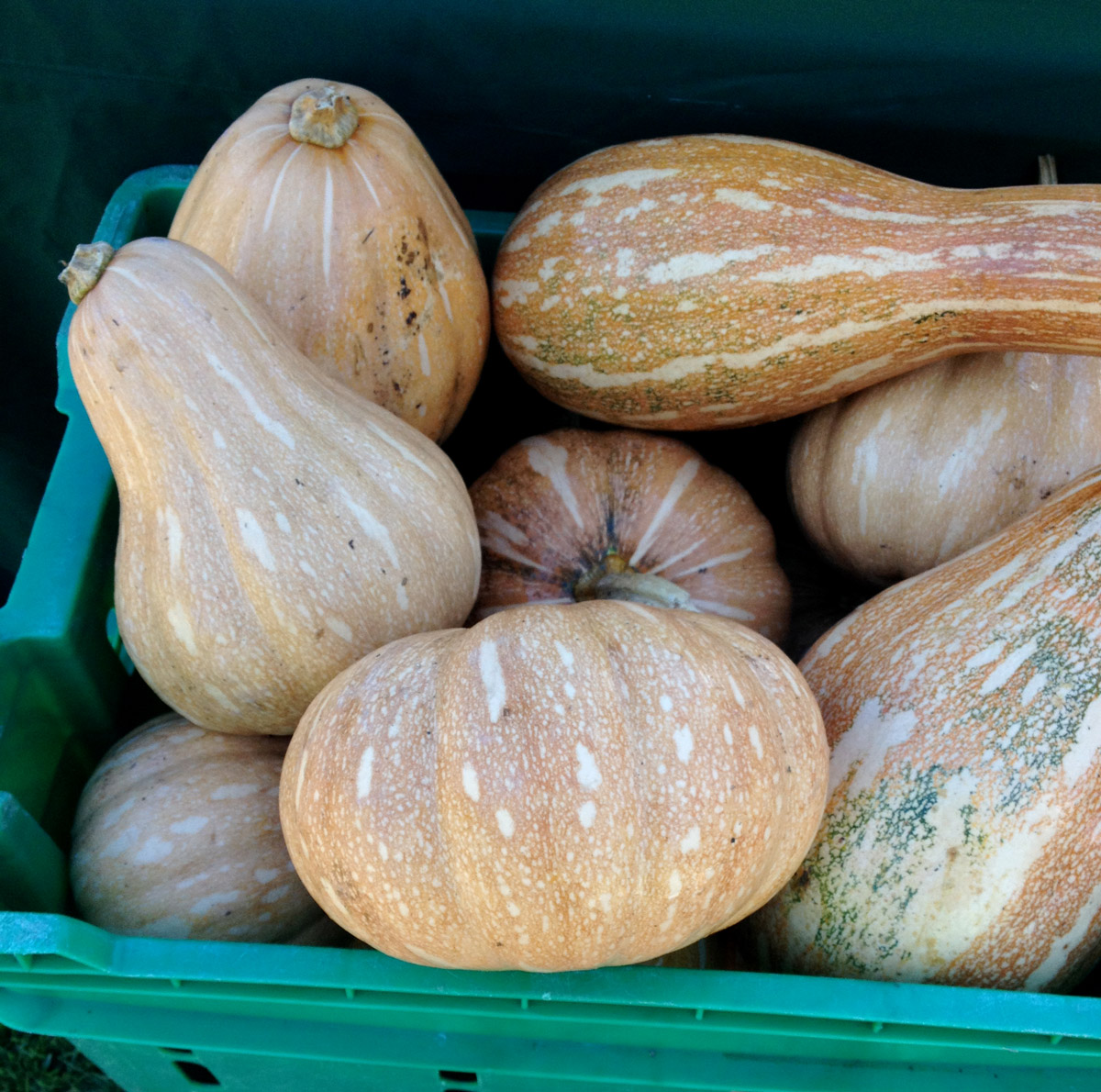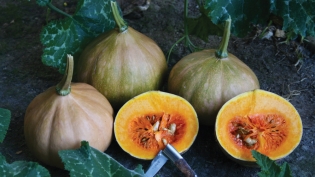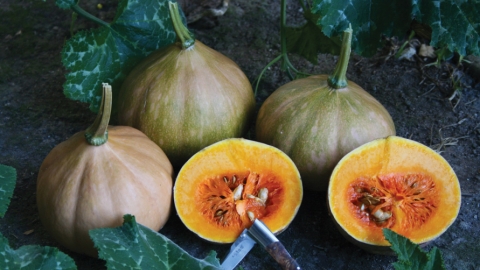Growing Seminole Pumpkins
Find Seminole Pumpkin
Seminole pumpkin is listed on the Slow Food Ark of Taste, delicious and culturally significant foods in danger of extinction. The Survival Gardener's Seminole Pumpkin Project explores the many variations here.
Plant seeds in the fall in South Florida (find detailed planting information from UF/IFAS here) and allow plenty of space. Harvest in 60 to 90 days. Find seeds from Slow Food Glades to Coast, Baker Creek Heirloom Seeds,
Use this versatile squash in many ways, according to Julia Morton’s “The Sturdy Seminole Pumpkin Provides Much Food with Little Effort.” Very young, tender fruits can be boiled and mashed; male flowers can be battered for fritters; the hard-shelled mature fruit can be baked or steamed. Or just cut in half, scoop out seeds, add some butter and a little brown sugar and bake.
Spiced Seminole Pumpkin-chickpea Soup
Serves 6
4 tablespoons olive oil
1 large onion
2 cloves minced garlic
1 2-inch piece of ginger, peeled and chopped
1 tablespoon sweet curry powder
1/4 teaspoon ground cardamom
Pinch of cayenne (optional)
1 lb. Seminole pumpkin, roasted (see recipe below)
1 16 oz. can chickpeas, drained and rinsed
4 cups vegetable or chicken broth
1/3 cup heavy cream
Sour cream and chopped cilantro for garnish
Salt and black pepper to taste
Saute onion, garlic and ginger in olive oil until onion is translucent. Add spices and stir around for a moment more. Add pumpkin, chickpeas and broth. Bring to a boil. Lower heat and simmer for about 10 minutes. Blend soup in batches until smooth. Add the cream and check the seasoning. Serve with sour cream and a sprinkling of cilantro.
Roasted Pumpkin
Preheat oven to 400º F. Peel pumpkin and scrape off stringy pulp and seeds. Cut pumpkin into ¾-inch cubes and toss in enough olive oil to lightly coat. Spread in a single layer on a greased cookie sheet and roast for about 35 minutes, or until they are cooked through.







